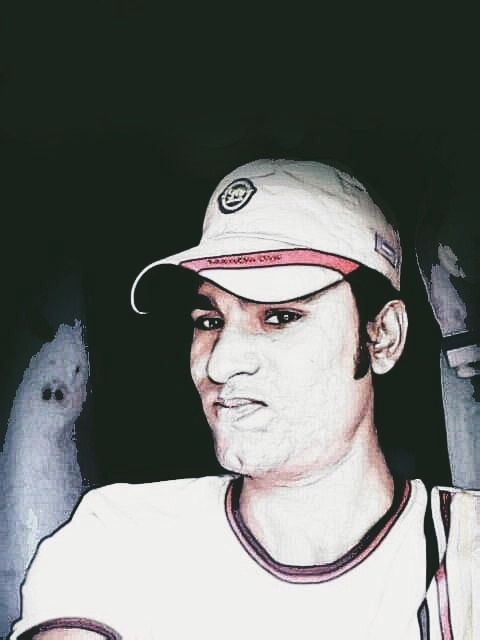Asian Jewish Life – The Unknown Jews of Bangladesh: Fragments of an Elusive Community
- Just Another Bangladeshi

- May 18, 2019
- 4 min read
Dr. Shalva Weil
It often comes as a surprise that there was once a thriving Jewish community in Pakistan. This is well documented. The real mystery and surprise is the fact that there was also once a Jewish community in East Pakistan, today Bangladesh, of which little is known.

Shalom Cohen (1762-1836) was the founder of the Calcutta Jewish community in West Bengal, which today is a part of India. He had migrated there from Surat (today in another part of India) in 1798. And, he also established the East Bengal Jewish community in what has become Bangladesh today.He sent his employees to Dacca (today Dhaka, the capital of Bangladesh) to trade in cloths, silks and muslins, and he himself sojourned there too. In 1817, Moses Duek, a businessman married to Cohen’s eldest daughter Lunah (at the age of 13!), left Calcutta to live for several years in Dacca and established a prayer hall there. Duek carried out his business in partnership with a non-Jew from Aleppo. In 1822, Duek finally returned to Calcutta with his family from Dacca, but kept up business contacts there. It is significant that, while the Baghdadi Jews continued to trade in Dacca, mainly in textiles, but also inpearls and opium, most of the Jews did not live there but actually resided in Calcutta, where they established multiple synagogues.
At the time of the Partition of Bengal and India in 1947, when the British pulled out of India, there were some 4,000 Jews in West Bengal, primarily in Calcutta, but, according to reliable sources, there were only about 135 Jews residing in East Bengal in Dacca. The latter became part of East Pakistan,which was (for a brief time) part of the new nation of Pakistan,but separated geographically from it by 1,600 kilometers of Indian territory. The famous American Jewish architect Louis Kahn designed the largest parliament building in the world in Dacca; completed in 1974, it was actually Kahn’s last monumental project.
In 1971, the Bangladesh Liberation War took place. Interestingly, it was a Jew, Lieutenant General (retired) JFR Jacob, who liberated East Pakistan during this war. General Jacob, as he is often known, was formerly governor of the Punjab and Goa, but today resides in New Delhi. He was born into a Baghdadi Jewish family in Calcutta, and never hid his Jewish ancestry. On the contrary, when I first reached India in the late 1970’s, Lt. General Jacob was an active member of the well-known New Delhi prayer hall, the Judah Hyam Synagogue, which celebrated its 50th anniversary in January 2007. He reached the highest ranks in India, which traditionally promoted co-existence and lived in harmony with its Indian Jewish minority. In the 1960’s, during the Indo-Pakistani War of 1965, Lt. General Jacob commanded an infantry division in the Indian state of Rajasthan, which later became India’s twelfth Infantry Division. He became a Major General by 1967. But his finest hour was in 1971 when as Chief of Staff of the Indian Army’s Eastern Command, he defeated Pakistan during the Indo-Pakistani War in two weeks, and successfully liberated East Pakistan. As fighting raged, he flew to Dhaka and wrested an unconditional surrender from Pakistan’s military commander Lt. General A. A. K. Niazi. 90,000 Pakistani soldiers surrendered to the Indian Army. East Pakistan then became the independent state of Bangladesh. Bangladesh is now officially a parliamentary democracy but 90% of the population is Muslim.
The Jews in East Pakistan (before it became Bangladesh) were in no way numerous and kept a very low profile in this Muslim country. Apparently today, a few Jews still remain, but they are quite assimilated. There is no synagogue today in Bangladesh,although a few expatriates do meet up on the eve of the Jewish New Year and on the Day of Atonement. Getting a portrait of this elusive community requires patience, a few of the right contacts and quite a bit of ‘digging’. A posting on Trip Advisor by a tourist asking where the synagogue is in Dhaka for Yom Kippur received no serious response and a few months later,the blog was closed “due to inactivity”. Another Jewish blogger shared that he went through a full orthodox conversion, is himself of mixed ancestry, his father being Yemenite Jewish and his mother Bangladeshi. Other people have written into the same blog saying they do business with Bangladesh, visit there and a few even reside there. As one person wrote: “The only Jews you will find in Bangladesh are those merchants with extensive business reasons to stay in Bangladesh.”
But liberating military commanders, the monuments of great architects, intrepid travelers and fortune seeking business men do not make a community. The question still remains, who are the Jews of Bangladesh? Joseph Edward of Ontario, Canada, explained the history of his family and their unique ties to the region. Joseph’s father Rahamim David Barook and his older brother Ezra Barook, were born in Calcutta, and moved to what was then East Pakistan. They adopted the surname Edward; his brother Ezra was known as Eddy Edward. Rahamim David Edward, Joseph’s father, married a Catholic of Portuguese descent. His uncle married a tribal king’s daughter from the Chittagong Hill Tracts, and she gave birth to a son. However, his wife died during childbirth and Joseph Edward’s uncle gave the baby up to a Muslim family for adoption. Edward has been in contact with cousins living in Arad and Beersheba, Israel. Other members of the family live in Sydney, Australia, in the UK and in Toronto, Canada.
Two other families of Jewish descent do in fact still live in Dhaka, but they have converted to Catholicism. Priscilla nee Jacob was married to Alfie D’Costa, who died some years back. Priscilla had her own private school in Dhaka. Her brother Henry also married locally and still resides in Dhaka as a Catholic. Likewise, there were two other Jewish brothers in East Pakistan, whom Joseph Edward knew: Enoch and Zebulon Daniels. Enoch lived in Chittagong and Zebulon lived in Dhaka. Their children now live in Canada and the UK.
While the Jews in West Bengal managed to create a full community, the Jews of East Bengal largely lived there for commercial reasons. They were never numerous. Nevertheless, documentation of the Jews of Asia and specifically Pakistan is incomplete without information on the Jews of East Pakistan, or what is today Bangladesh. The full story of this elusive community remains to be written.
Dr. Shalva Weil, a specialist in India’s Jews, is a Senior Researcher at the Research Institute for Innovation in Education at the Hebrew University of Jerusalem.

_edited.png)


























Lovely content
lulu laggye
i cant find what i am looking for
great hindu and hinduism
great hindu and hinduism